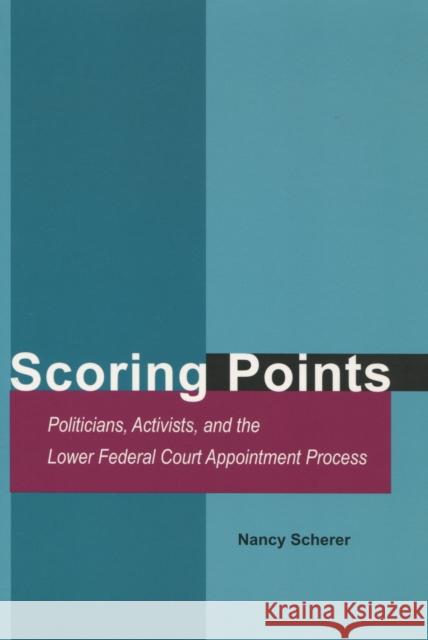Scoring Points: Politicians, Activists, and the Lower Federal Court Appointment Process » książka
Scoring Points: Politicians, Activists, and the Lower Federal Court Appointment Process
ISBN-13: 9780804749480 / Angielski / Twarda / 2005 / 288 str.
Scoring Points: Politicians, Activists, and the Lower Federal Court Appointment Process
ISBN-13: 9780804749480 / Angielski / Twarda / 2005 / 288 str.
(netto: 482,14 VAT: 5%)
Najniższa cena z 30 dni: 505,22
ok. 22 dni roboczych.
Darmowa dostawa!
This book explores how the lower federal court appointment process became vastly politicized in the modern era. Scherer develops a theory of "elite mobilization," positing that lower court appointments have always been used by politicians for electoral purposes, but because of two historic changes to American institutions in the 1950s and 1960s--the breakdown of the old party system, and a federal judiciary reception to expanding individuals' constitutional rights--politicians shifted from an appointment system dominated by patronage to a system dominated by new policy-oriented appointment strategies. The use of these new strategies not only resulted in partisan warfare during the nomination and confirmation stages of the appointment process, but also led to party-polarized voting in the lower federal courts. Employing exclusive data of judicial decision-making from the New Deal era through the present, Scherer demonstrates that there was little party-polarized voting in the lower federal courts until the late 1960s, and that once politicians began to use elite mobilization strategies, significant party-polarized voting in the lower federal courts resulted. Accordingly, elite mobilization strategies have affected not only politics in Washington, but also the way justice is distributed across the country.











